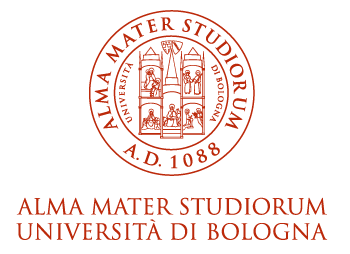To graduate, you have to sit a final examination designed to verify that you have reached the education objectives set by the Degree Programme.
Please follow the below guidelines for a successful thesis preparation.
The length of the thesis should be between 60-120 pages including notes, tables and attachments. The thesis must meet the following criteria:
Accurate referencing and bibliography is an important element of the thesis. Students should adopt a standard citation system and bibliography format. Please note that besides these general guidelines, students will refer to each professor in order to use the appropriate referencing style of the department.
The university takes plagiarism very seriously and has legal implications: concepts and statements taken from the literature should be appropriately reworded and referenced. To avoid plagiarism all material, whether directly quoted, MUST be acknowledged correctly.
The admission grade averages the exams’ grades and converts it into the 66-110 scale.
Remarkably, courses and activities providing an assessment on a pass/fail basis (idoneità in Italian) such as laboratories, seminars or internships do not contribute to the admission grade.
For every exam that the student passed with honors (lode), 0.33 points are added to the admission grade. The figure resulting from previous calculations is rounded up or down to the nearest integer value.
The student admission grades, the graduation date and the names of the Graduation Board members will be published by the Graduation Management Office a few days before the graduation date on Studenti Online - SOL.
Students may contact the Student Administration Office (Segreteria studenti) if they wish to check their average in advance.
Extra points will be given to those students who graduate on time:
Students can choose to major in a topic related to a module included in their study plan. Almost any academic (full, associate or assistant professor) who taught a module in Law, Economics and Governance can act as thesis supervisor, including adjunct professors, but excluding professors delivering seminars and external experts (unless provided for by a specific agreement). In special instances, and after discussing the issue with the Programme Director, graduands may choose as supervisor an academic of the University of Bologna who is not part of Law, Economics and Governance faculty. A co-supervisor is an instructor who may provide extra-help to prepare the dissertation. Foreign professors, lecturers of seminars and external experts can act as co-supervisor. It is noteworthy that having a co-supervisor will not grant students any extra-point on their final grade.
To set up their dissertation, students will avail themselves of the guidelines provided in the compulsory Dissertation Project Management module. The module will teach students how to look up literature on the selected topic, formulate research hypotheses or questions, collect and search for relevant data and information, perform appropriate analyses, discuss findings, and write the dissertation.
The final examination requires the defense of the master thesis in front of a Graduation Board composed of professors of the School of Economics and Management.
The Graduation Board can grant a maximum of 5 points to the dissertation upon the thesis defense, which is added to the student’s admission grade.
To earn more than 5 points and if the thesis deserves special attention, the supervisor can ask for a controrelatore (counter-supervisor). The controrelatore has to be an academic of the University of Bologna or a Law, Economics and Governance degree programme adjunct professor.
The supervisor will submit the request by email to the Degree Programme Director with the Graduation Management Office cc'ed (didatticascaravilli.lauree@unibo.it) by the date the supervisor must approve the dissertation. The controrelatore may take part in the graduation session, if s/he is available. In case s/he were not, s/he has to send an evaluation of the student's work through a letter or email to be delivered to the Graduation Management Office, but addressed to the Graduation Board. In this case, up to 3 extra points can be unanimously granted by the Graduation Board.
The assignment of a controrelatore is also necessary when the supervisor plans to request the honors (lode) and the candidate has an admission grade below 108/110. To award 110/110 with honors (110 e lode), the Graduation Board must approve unanimously.
During the defense, candidates have approximately 10 minutes to discuss their dissertation. Candidates can use a set of slides using the computer that is available in each room and the Graduation Board may ask them in-depth questions on methods, results, and any developments of their work. After all dissertations of the graduation session have been discussed, candidates will gather for the graduation ceremony and proclamation.
Candidates and their guests are requested to respect the following rules of behaviour on graduation day:
The University refers graduands and their guests to Article 2043 of the Civil Code, with particular consideration for responsibility for damages and Article 635 of the Penal Code, referring to criminal damages. The President of the Graduation Board reserves the right to refuse to sign the degree certificate in case of problems and misbehaviour.
The University must guarantee a disciplined and regular pattern of graduation sessions, thus it is highly recommended that those who are willing to take pictures in the University rooms during these sessions:
Candidates are free to choose any photographer, not only a professional one, but also a relative or a friend.
A group of professional photographers has activated a self-managed coordination service, which is committed to guaranteeing the presence of a photographer in each graduation seat and for each graduation session. The service does not entail any exclusive right or any obligation for students to purchase pictures.
The University is not related to this service, which is performed by self-managing professional photographers.
